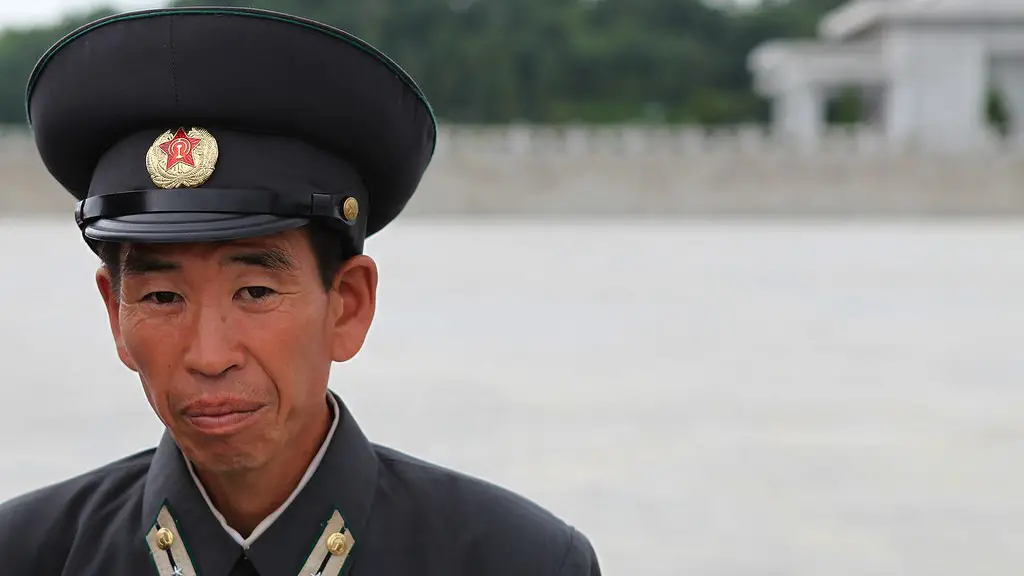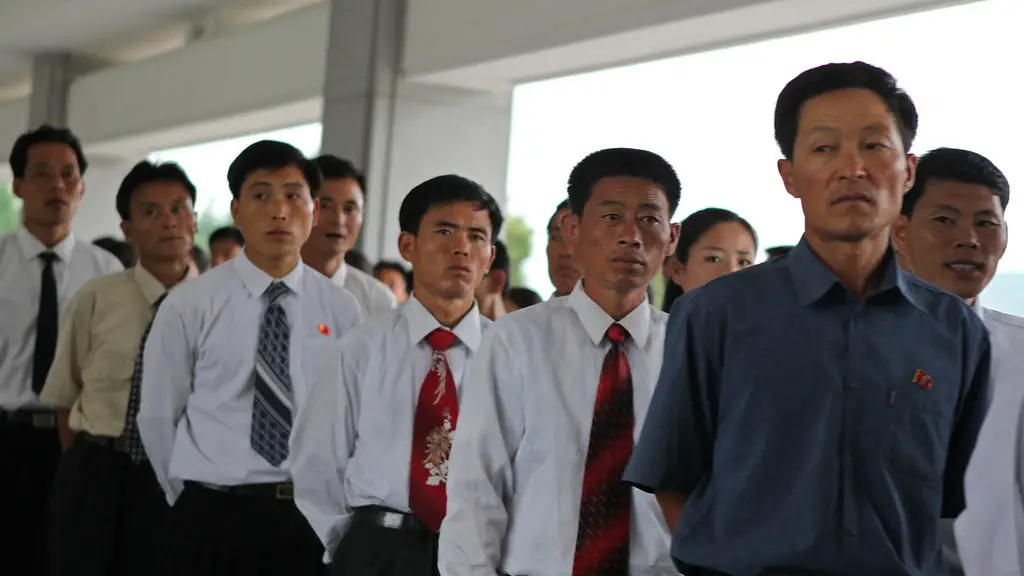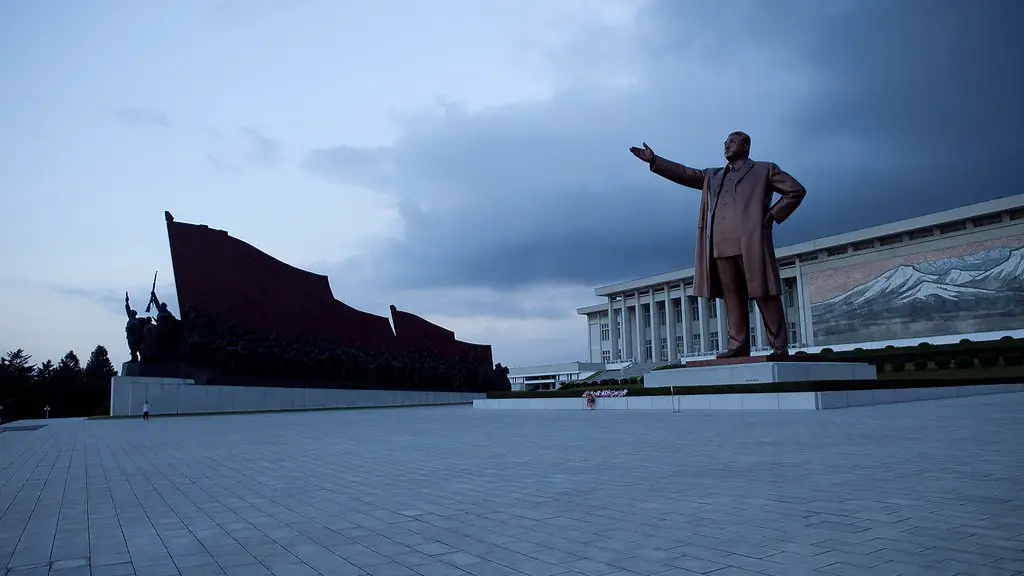Background and Relevant Data
North Korea is a country with a long history of nuclear development and testing. Since 2006, it has conducted five nuclear tests, including the latest and most powerful one in 2017. North Korea is the only country in the world to have conducted tests in the 21st century. The country has had a long-standing nuclear program that dates back to at least 1980. It is estimated that the country has enough material to make between 10 and 16 nuclear bombs. According to the Institute for Science and International Security, it could make as many as 25 by 2020.
In response to North Korea’s nuclear ambitions, the UN Security Council adopted Resolution 1718 in 2006, which sought to pressure the country to disarm its nuclear weapons and compliance with the Nuclear Non-Proliferation Treaty. Although several rounds of six-nation talks ended in failure, North Korea announced in January of 2018 that it was willing to return to the negotiating table to discuss denuclearization.
The number of nuclear weapons North Korea has is largely unknown. However, analysts believe that the country has the potential to manufacture enough weapons to significantly increase its stockpile. According to the International Institute for Strategic Studies, North Korea had approximately 10-16 nuclear weapons as of 2019. The country has also been developing intercontinental ballistic missiles capable of carrying a nuclear payload, as well as shorter-range missiles that could target other countries in the region, such as South Korea and Japan.
Perspectives from Experts
Several analysts and experts have weighed in on North Korea’s nuclear program and the country’s potential for acquiring more weapons. Richard Nephew, the former principal deputy coordinator for sanctions policy at the U.S. department of state has said that US officials are concerned about the possibility that North Korea could increase the size of its nuclear arsenal. He argues that the country is likely attempting to build up a stockpile in order to have greater leverage when it comes to negotiations.
Analysts from the Rand Corporation have echoed these fears, noting that North Korea’s “nuclear capabilities are growing and could continue to do so without effective intervention.” According to them, the country is capable of producing as many weapons as it needs, and could possibly amass up to 25 weapons by 2020, although this is “highly speculative.”
North Korea’s nuclear program has been a major source of concern for the United States, South Korea, and other nations around the world. Bruce Klingner, an expert on Korea at The Heritage Foundation has said that “the United States and its allies must find a way to adjust to a nuclear-capable North Korea.” He believes that in spite of the country’s arms buildup, the US should still pursue diplomatic engagement.
Insights and Analysis
North Korea’s nuclear arsenal is cause for concern, but it is important to remember that the country is highly isolated and has few allies. As such, it is unlikely that it could successfully launch a nuclear strike on another nation without suffering severe consequences.
At the same time, the country’s nuclear weapons programs do present a serious threat to regional stability. The longer North Korea continues to arm itself, the more unstable the region becomes and the greater the risk of a conflict. It is important, therefore, for the international community to continue to work towards a diplomatic resolution.
Sanctions have had some effect in curbing the country’s nuclear ambitions, but it is clear that those measures alone are not enough to contain the threat. To that end, further economic and diplomatic pressure must be applied to ensure that North Korea does not acquire more weapons or the means to deliver them.
The US and other nations must also continue to press for denuclearization, both through diplomatic efforts and through the possibility of sanctions and other measures as needed. Ultimately, the key to reducing and eliminating the North Korean nuclear threat is to find a way to bring the country back to the negotiating table and to find a mutually agreeable solution to disarmament and denuclearization.
The Country’s Political Stand
North Korea has always been opposed to denuclearization, frequently citing security concerns. The country has sought to strengthen its nuclear weapons development in order to maintain a deterrent against a perceived U.S. threat.
Even though North Korea appears to be willing to come to the negotiating table, it has also consistently insisted that any negotiations would have to be based on the “principle of simultaneous actions.” This would involve a step by step process in which the US and other parties would have to make concessions in order for North Korea to make progress towards denuclearization.
Unfortunately, the U.S. has been unwilling to take such a step-by-step approach, insisting instead on a more “all for one” approach in which North Korea would have to make all of its concessions before any rewards could be given. This position has frustrated North Korea and has been a significant barrier to negotiations.
Weapons in the International Context
The international community has taken measures to ensure that North Korea is not able to threaten other nations with its nuclear weapons. The UN Security Council has imposed a number of sanctions on North Korea in an attempt to pressure the country to abandon its nuclear ambitions and adhere to international law.
The United States has also taken a hard line against the country, imposing its own additional sanctions. The US has stated unequivocally that it will not accept a nuclear-armed North Korea and has threatened military action as an option if the country does not comply.
However, some analysts have pointed out that the threat of military action may not be enough to deter North Korea’s nuclear ambitions, and that the country may be willing to risk the consequences in order to preserve its nuclear weapons.
The Impact on the Region
The presence of North Korea’s nuclear weapons has had a destabilizing effect on the region. The country’s nuclear tests, as well as its missile launch tests, have been met with strong opposition in Japan and South Korea, both of which are at risk of attack if tensions escalate.
The threat of a North Korean nuclear attack has also led to an increased military presence in the region, particularly from South Korea and the United States. In addition, U.S. and South Korean forces have conducted joint military exercises in the region to prepare for a possible conflict.
The situation has also caused considerable economic hardship for North Korea as international sanctions have curbed the country’s economic activity. These economic and diplomatic pressures have also impacted the country’s relationship with its neighbors, further increasing tensions in the region.
Possible Solutions
In order to address the threat posed by North Korea’s nuclear program, a number of potential solutions have been proposed. One possible solution is to pursue a negotiated settlement with North Korea, in which the country agrees to dismantle its nuclear weapons in exchange for economic, diplomatic, and security benefits.
A number of experts have argued that such an agreement could provide both sides with a path to peace and stability, as well as provide North Korea with the economic support it needs to rebuild its economy. However, there is no guarantee that such an agreement could be reached, or that it would be effective in eliminating the nuclear threat.
Another potential solution is to significantly increase the pressure on North Korea in the form of further economic and diplomatic sanctions. The US and its allies could also increase their military activities in the region in order to deter North Korea from further aggression.
However, this approach could also have negative consequences, particularly if North Korea responds with its own military action. In addition, escalation of military activities could further destabilize the region and could even lead to an all-out conflict.
Finally, some have proposed offering North Korea economic aid to help it develop its economy and reduce its dependence on nuclear weapons. However, analysts have noted that any aid would likely come with strings attached, such as the requirement that North Korea dismantle its nuclear weapons. Such an agreement could potentially be successful, but it would be difficult to implement and could be subject to collapse if North Korea refuses to comply.
International Support
The international community has condemned North Korea’s nuclear program and has sought to find a peaceful resolution to the crisis. The UN Security Council has been united in its opposition to North Korea’s nuclear ambitions and has imposed a number of sanctions on the country.
The United States has also been vocal in its opposition to North Korea’s nuclear weapons, and is working with its allies in the region to find a peaceful resolution to the crisis. The US has stated that it is willing to negotiate with North Korea, but insists that any agreement must include a commitment to denuclearization.
Other countries in the region have also expressed their support for a peaceful resolution and have sought to facilitate negotiations. China, Russia, and South Korea have all expressed a willingness to open dialogue with North Korea and to work towards a peaceful solution.
Ultimately, a peaceful resolution to the North Korean crisis will require the international community to work together and to use diplomatic and economic pressure to persuade North Korea to abandon its nuclear weapons.


